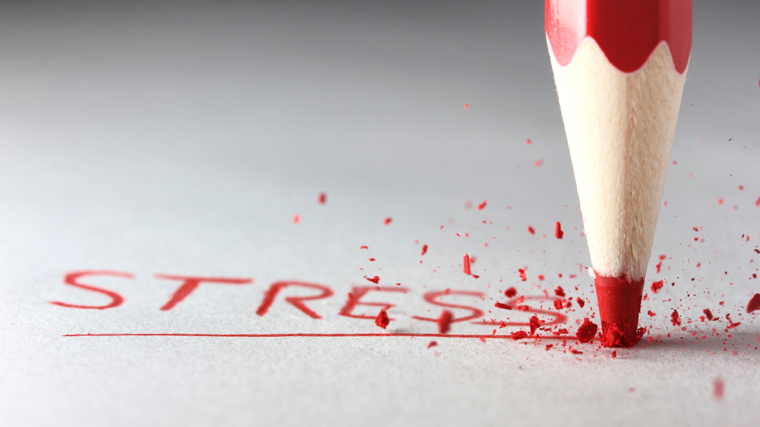Exams … assignments due … projects … group work … financial concerns … it can all add up to a lot of stress. Stress is your body’s reaction to over-stimulation. A certain amount of stress is normal and necessary but too much can be counterproductive. There are two choices for managing stress: change the situation or change your response to it. Often how we think about a situation increases our stress levels out of proportion to the actual event. Thinking patterns such as “Everyone will think less of me if they know I am not perfect”, “I have to approach every task in a ‘do or die’ fashion,” “Even minor mistakes mean I am a total failure” or “I should always be in control and never show any weaknesses” can make your stress levels soar.
Stress signals vary for everyone but can include irritability, mood swings, outbursts of anger, restlessness, apathy, loss of efficiency, difficulty concentrating, forgetfulness, frequent illness or delayed recovery, withdrawal, avoidance of social situations, appetite change, headaches, fatigue, insomnia and digestive problems.
Suggestions for managing stress:
- Be realistic. Set small goals that are challenging but achievable. Break larger goals or projects down into small, realistic steps.
- Challenge perfectionist, self-critical and self-defeating thoughts about your performance, appearance, etc.
- Take care of yourself! Eat properly, get the amount of sleep you need, get daily exercise, do some things you like to do, and make sure you have something to look forward to every week. Be selfish, at least some of the time.
- Eliminate unnecessary stressors such as unhealthy relationships and unimportant tasks or commitments. As much as possible, try to avoid situations and people that upset you.
- Beware of stimulants. Caffeine, salt, chocolate, alcohol, sugar and smoking can make you more susceptible to stress.
- Get organized. Make home, schoolwork, clothing, etc. are in order. Get books, lunch, keys and clothing ready the night before so there are no added stressors to start your day.
- Manage your time. Use a daytimer or your cell phone for scheduling, planning and reminders, make a (realistic) daily to-do list and then prioritize your activities and work on the most important tasks first.
- Avoid procrastination. Putting off tasks only increases stress.
- Use positive self-talk. Telling yourself “I can succeed.” “I am really starting to understand this material” or “I can stay on top of the workload” set you up for success. Negative self-talk is the brain’s equivalent of junk food and will enhance stress. Surround yourself with positive people where possible.
- Make a study plan and start studying for major exams well in advance. The better prepared you feel for an exam the less likely you are to blank out or panic.
- Do not compare yourself with others. Anxious people tend to think others are smarter, better looking, faster, etc.
- Find at least one relaxation technique that works for you. Counsellors can help you explore a variety of techniques.
- Include humour every day. Humour and laughter work against stress.
- Learn to breathe. Shallow, rapid breathing promotes anxiety. Deep, slow breathing counteracts anxiety and panic as well as getting more oxygen to your brain to help with memory, learning and creative problem solving.
- Use your social support network. Friends and family can help you to see things from a different perspective.
- See a counsellor to work on any personal or academic concerns. The sooner they’re dealt with, the easier it is to find a solution.
MARGARET MAREAN
NAIT Student Counselling






